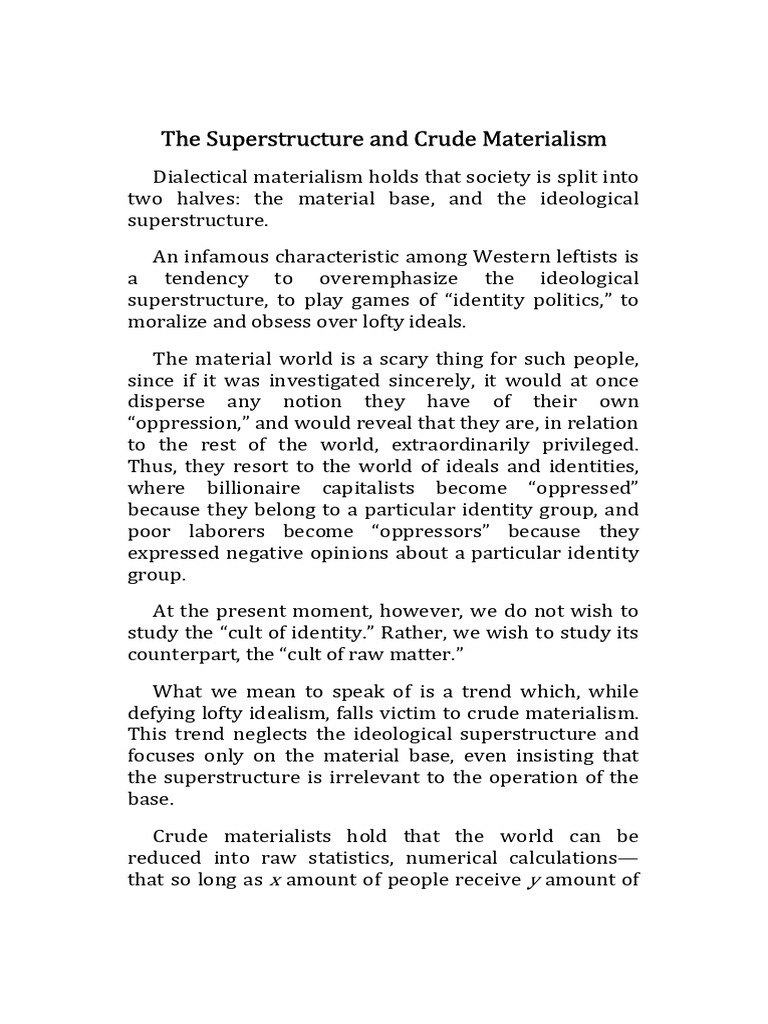In an era where materialism pervades everyday life, the Bahá’í teachings offer profound insights that can serve as a compass, guiding individuals towards spiritual emancipation and illuminating the path to personal and collective fulfillment. The concept of breaking the chains of despair and materialism is a salient aspect of these teachings, which advocate for a transformative shift in perspective—an invitation to transmute our worldly attachments into a more profound understanding of values that transcend mere material belongings.
The dichotomy between materialism and spirituality is stark. Materialism often ensnares individuals in a cycle of insatiable desires, breeding discontent and despair. In contrast, Bahá’í teachings posit that true happiness and satisfaction are found not in the accumulation of physical possessions but in the nurturing of the soul and in the pursuit of lofty ideals. The Bahá’í Faith encourages a holistic worldview that perceives humanity as interconnected, thereby fostering a sense of collective responsibility and shared purpose.
At the crux of Bahá’í philosophy is the notion that the material world is but a transient expression of a deeper spiritual reality. The awareness of this spiritual dimension invites individuals to reevaluate their priorities and to recognize that the pursuit of worldly gains can often overshadow the cultivation of virtues such as love, compassion, and service to others. By shifting focus from self-serving endeavors to the well-being of the community, individuals can liberate themselves from the shackles of materialism.
This paradigm shift also entails embracing optimism in the face of despair. Bahá’í teachings speak to the significance of cultivating hope—a sentiment that is often overshadowed by material concerns. Hope serves as a powerful antidote to despair, inspiring individuals to envision a better future not only for themselves but for humanity at large. In times of adversity, the Bahá’í Faith emphasizes the importance of prayer and reflection, which can fortify one’s spirit and renew commitment to humanitarian ideals.
Another pivotal aspect of breaking free from despair involves engaging in the practice of gratitude. Recognizing and appreciating life’s blessings—no matter how small—nurtures positivity and cultivates resilience. The Bahá’í writings encourage individuals to maintain a constant awareness of the myriad gifts bestowed upon them, fostering a sense of gratitude that shields the heart from the corrosive effects of despair.
Moreover, the Bahá’í teachings advocate for the pursuit of knowledge as a means of transcending limitations imposed by materialism. Education, both formal and informal, emerges as a vital instrument for empowerment. Through knowledge, individuals gain the ability to question prevailing norms and to seek innovative solutions to the challenges facing society. The quest for knowledge is not solely for personal gain but is profoundly integrated with the well-being of the community, promoting social progress and unity.
Bahá’í perspectives on the role of service in alleviating despair also warrant discussion. Engaging in acts of kindness and altruism unfetters individuals from the chains of self-interest and instills a sense of purpose. The teachings emphasize that serving others enriches the giver’s life and fosters a sense of belonging within the community. In this way, service transforms despair into hope, as individuals recognize the impact of their actions on others, thereby igniting a chain reaction of positivity.
An exploration of the interplay between materialism and spiritual growth unveils the transformative power of self-discipline. The ability to exercise restraint in the face of material temptations contributes significantly to one’s spiritual development. The Bahá’í teachings encourage individuals to cultivate virtues such as generosity, moderation, and justice, which act as counterweights to the excesses of materialism. By consciously choosing to prioritize spiritual over material pursuits, individuals can embark on a journey of self-discovery and fulfillment.
The potency of community and fellowship in a Bahá’í context further amplifies the message of breaking free from despair. Shared experiences, dialogues, and collaborative efforts create bonds that remind individuals of their shared humanity. In communal spaces, individuals can find resonance and support, which serve as vital buffers against feelings of isolation and despair. The Bahá’í community is founded on principles of inclusion and unity, inviting individuals to partake in the collective pursuit of betterment.
Finally, the Bahá’í teachings extend an invitation to embrace a cosmopolitan worldview. Understanding oneself as part of a larger whole fosters empathy and compassion towards others. By transcending national and cultural boundaries, one can appreciate the diversity of human experience, enriching personal understanding and reinforcing communal ties. Through this lens, the act of breaking the chains of despair and materialism expands beyond the individual to encompass global consciousness, ultimately promoting peace and unity across humanity.
In conclusion, the Bahá’í teachings offer a holistic framework that actively dismantles the chains of despair and materialism. By championing a shift in perspective—one that values spiritual growth, community engagement, and altruistic service—these teachings equip individuals with the tools necessary to navigate an increasingly materialistic world. The journey towards liberation from despair is not merely a personal endeavor; it is an intrinsic aspect of the collective human experience. Through these teachings, we are reminded that true fulfillment lies in the richness of our shared existence and the nurturing of our spiritual essence.
